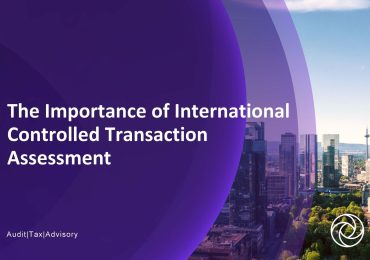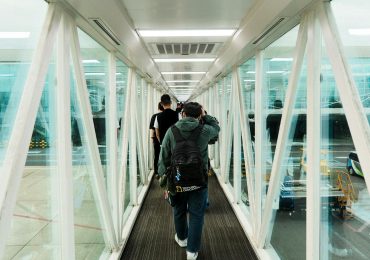In 2020, Georgia’s capital outflow exceeds inflow by $2 billion. The negative balance (current account deficit) increased by $1 billion year-on-year. That is the main reason for the recent devaluation of the local currency.
Traditionally, Georgia loses the most amount of dollars through foreign trade in goods. Until 2020, the country was able to significantly offset these losses with trade in services. For example, the negative balance of foreign trade in goods in 2019 was $3.7 billion, while the positive balance of trade in services was $2.2 billion, meaning that the total negative trade balance was reduced to $1.5 billion.
In 2020, the negative foreign trade balance was $3.1 billion, which is $585 million less than the 2019 figure. The fall in imports ($1.2 billion) exceeded the fall in exports ($615 million), resulting in an improved balance. However, the balance of foreign trade in services worsened by $2 billion, meaning that the overall balance of foreign trade in goods and services worsened by $1.5 billion compared to 2019.
The worsening of the foreign balance of trade in services was caused by the suspension of tourism due to Coronavirus. The amount spent by visitors to Georgia decreased from $3.3 billion in 2019 to $542 million in 2020, representing a $2.7 billion fall in revenues. The amount of money spent by Georgians abroad also decreased by $477 million, meaning that Georgia lost a total of $2.3 billion from the suspension of tourism in 2020.
Along with tourism, foreign currency inflows were significantly affected by a decrease in foreign direct investment and foreign portfolio investment by $1.3 billion in total.
Furthermore, the Georgian economy shrank by 6.2%, thereby reducing demand for the lari.
The local currency would have depreciated even further, had the government not taken on an additional $1.8 billion in foreign debt. These funds were mainly transferred to the foreign currency reserves of the National Bank of Georgia (NBG), which proceeded to sell $873 million on the local currency market in 2020, and $243 million between January and April 2021. In just over one year since the start of the pandemic, NBG has sold a total of $1.1 billion, thereby slowing the depreciation of the lari.
Changes in the currency exchange rate, foreign trade and other foreign economic relations constitute a joint dynamic process. If it were not for the depreciation of the lari against the dollar, Georgia’s external balance (current account deficit) would have been even more negative.
The pandemic reduced the demand for the dollar in Georgia, as economic activity and internal demand decreased. Low internal demand reduces imports and outflow of foreign currency. Had it not been for the increase in the budget deficit and the launching of new social and subsidy programs by the government, internal demand would have fallen even further. The increase in expenditure was partly justified, as it served to support citizens who lost their jobs because of the pandemic. On the other hand, higher expenditure means higher government debt and more negative pressure on the local currency.
The initial expectations in 2020 were that the country would overcome the pandemic in a few months, and it would just be a minor problem by 2021. Now these expectations have been delayed to2022 due to the collapse of the vaccination process in Georgia. Until the spread of the virus is minimized, the country’s main source of income – tourism – will be unable to recover. Georgia will also be unable to obtain the same amount of foreign funding as in 2020, as its debt-to-GDP ratio has already reached 65%. The prolonged crisis and the decrease in foreign aid means that it is no longer practical for NBG to conduct currency intervention to the same extent as last year.
The lari will rebound if the figures registered by the tourism sector are even half as good as they were in 2019. We have no other major sources of foreign currency. However, as we are feeling the effects of the third wave of the pandemic, we may find that 2021 will be even worse for tourism than 2020. The third wave of the virus will leave Georgia facing a painful dilemma: 1. Significantly increase refinance rates (the interest on loans), leading to NBG reducing demand, selling the dollar, strengthening the lari and stabilizing the prices, albeit at the cost of slower economic growth (possibly even a recession) in 2021; or 2. The lari depreciates further, inflation remains high, economic activity remains stable, and the economy grows (unless new strict economic restrictions are imposed to control the spread of the virus).
The best way to overcome this dilemma is for members of the public to get vaccinated as quickly as possible and fully comply with all preventative measures. There are no effective solutions in the economic policy scenarios unless we become used to the waves of the virus and rely on developing herd immunity. The latter is as unlikely as the prospect of much of the population getting vaccinated in a few months, maintaining social distancing, and avoiding crowded spaces.
Only external factors can help Georgia mitigate the economic dilemma. The exchange rate of the lari is intricately linked to the exchange rate of the currencies in the countries that are our trading partners (particularly our neighbors). Despite our domestic affairs, the currencies of our trading partners may appreciate. Under equal circumstances, this would also lead to the appreciation of the lari.
To ensure that the ongoing processes do not get out of hand, inflation and state debt do not increase and the lari does not depreciate much further, the government must avoid imposing further strict economic restrictions under any circumstances, even if the spread of the virus escalates. Furthermore, the budget deficit must at the very least not increase. The government ought to abandon the subsidy programs that artificially increase demand in certain sectors, damage strict monetary policies, and ultimately result in depreciation of the lari and higher inflation. The economy should be stimulated by lowering interest rates, rather than through subsidy programs.
We are insured against the prospect of strict economic restrictions given the fact that the Georgian government will be unable to take on additional debt. Borrowing more money would be a dangerous move and a big mistake. Economic restrictions result in reduced budget revenues, higher expenses, and ultimately, in an increased budget deficit and state debt.
To summarize, the lari can be strengthened by quick vaccination and opening the country to tourists. Any other alternatives come with a heavy price that will impact the population as severely as the currency devaluation did.
Forbes Georgia: სარედაქციო გუნდი
















